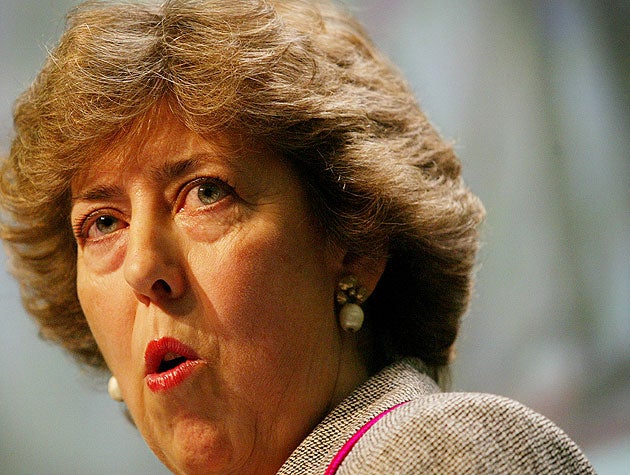Former MI5 chief General Baroness Manningham-Buller backs proposals for judges to hear intelligence evidence in secret

Your support helps us to tell the story
From reproductive rights to climate change to Big Tech, The Independent is on the ground when the story is developing. Whether it's investigating the financials of Elon Musk's pro-Trump PAC or producing our latest documentary, 'The A Word', which shines a light on the American women fighting for reproductive rights, we know how important it is to parse out the facts from the messaging.
At such a critical moment in US history, we need reporters on the ground. Your donation allows us to keep sending journalists to speak to both sides of the story.
The Independent is trusted by Americans across the entire political spectrum. And unlike many other quality news outlets, we choose not to lock Americans out of our reporting and analysis with paywalls. We believe quality journalism should be available to everyone, paid for by those who can afford it.
Your support makes all the difference.Intelligence relationships between the UK and other countries could be “seriously jeopardised” unless judges are allowed to hear evidence in secret, a former MI5 chief has said today.
Former director general Baroness Manningham-Buller said in a letter to The Times that it would be "dangerous" for the UK if the proposals did not become law.
The Government has said it is wasting millions of pounds of taxpayers' money on settling claims, some of which may have no merit, because it is unable to contest them as the evidence it would wish to produce is so secret that it cannot be revealed in an open court.
The former director general backed the Justice and Security Bill which would grant judges the choice to listen parts of civil cases, including claims for mistreatment, in private without claimants being able to hear some of the evidence against them.
She said: "The Bill also aims to close a legal loophole that seriously jeopardises the intelligence relationships between the UK and other countries.
"Unless this loophole is closed, the flow of intelligence from other countries, which according to the Independent Reviewer of Terrorism Legislation, has already been reduced, will slow to a trickle," she said.
"That would be dangerous for the UK as so many of the threats we face are global and we need foreign intelligence to understand and counter them."
She added that the reforms would allow the cases to be properly judged for the first time.
She said: "Because the secret material held by the authorities cannot be used in court, the Government is forced to settle without a judge examining the merits of the claim.
"This is immensely damaging to the reputation of the Government and the intelligence and security agencies, which cannot defend themselves."
PA
Join our commenting forum
Join thought-provoking conversations, follow other Independent readers and see their replies
Comments